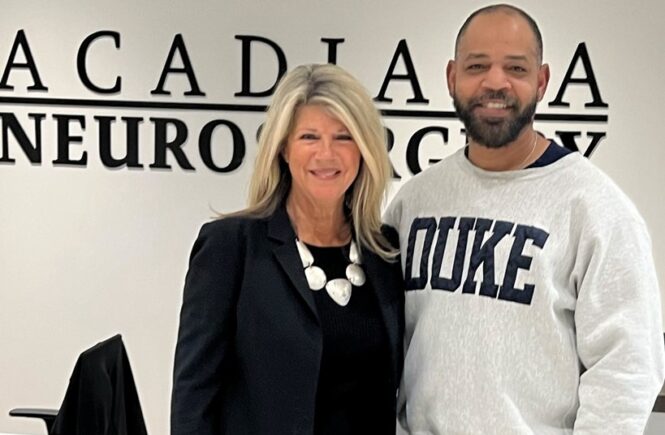Podcast: Play in new window | Download (Duration: 56:23 — 77.4MB)
Dr. Jason Cormier of Lafayette Surgical Specialty Hospital joins Discover Lafayette to share his phenomenal story of success as well as overcoming trials and tribulations. He is not only a renowned neurosurgeon, but he is also a race car driver, accomplished musician, inventor, and author of the newly released “Driven” which he wrote to encourage others on ways to overcome seemingly impossible obstacles.
A native of Lafayette, Dr. Cormier is a graduate of St. Thomas More. At LSU, he played point guard alongside Shaquille O’Neal and Chris Jackson under the tutelage of Coach Dale Brown and played pro ball for a brief time in Europe. He went on to graduate from LSU Med School and was a neurosurgery resident at the University of Alabama at Birmingham for six years where he trained in complex spinal surgery.
Dr. Cormier has been named one of America’s top Surgeons in the field of neurosurgery by the Consumers Research Council and Guide to America’s Top Surgeons and has worked extensively with Traumatic Brain Injuries and assists NCAA Football, the NFL, NASCAR, the Jockey’s Guild, various rodeo organizations and other sports representing athletes in high-contact sports.
Since 2014, he has been listed in the “Leading Physicians of the World” for Neurosurgery, and recognized as an international expert in brain injury and concussion. He has been awarded the Castle Connolly Top Doctor in the field of Neurosurgery, and recently served as the 19th President of the Society of Brain Mapping and Therapeutics, an international organization working with experts to improve the diagnosis, treatment, and rehabilitation of patients afflicted with neurological disorders.
Humble in the recounting of his story, Dr. Cormier says, “No one stressed education more than my mother” who taught science at UL-Lafayette and at Lafayette High for many years. He wanted to play in the NBA but when his career was cut short his mom pushed him to pursue higher education. Always being good in science, medicine was a natural fit.
Specializing in complex brain surgery which includes vascular neurosurgery and arteriovenous malformation (a tangle of blood vessels connecting arteries and veins, which disrupts normal blood flow and oxygen circulation), Dr. Cormier says he handles about 95% of the aneurisms that come into Lafayette. He also performs minimally invasive procedures to take out tumors in the brain and treats brain trauma.
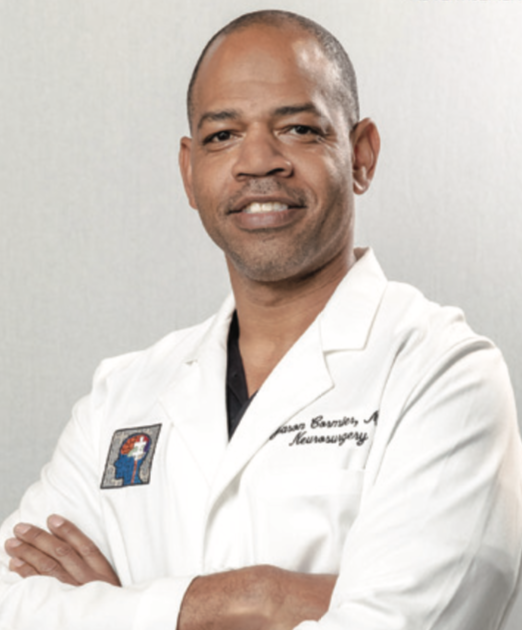
Dr. Jason Cormier is proud of the team he works with at Lafayette Surgical Specialty Hospital and gives them much credit: “It’s a team effort. You can’t do it alone in a silo as one human being. You need a team. I tell every single patient I operate on that I have a good team backing me up and that I have the good Lord. I believe that from start to finish when you walk in the door. Buffy Domingue, CEO, and her administrative team are also a big part of that.”
Dr. Cormier credits Lafayette Surgical Specialty Hospital for being the first to bring in the MiRus IO Expandable Lumbar Interbody technology which allows him to perform less invasive spinal neurosurgery on people suffering from degenerative disc disease. Cleared for use by the FDA in August 2021, the MiRus IO allows the surgeon to enter collapsed disc space and expand it by inserting the device into the disc. This minimally invasive procedure calls for a 26 mm incision versus the traditional 26-inch incision. When operating in a small corridor such as allowed by the MiRus IO, outcomes are dramatically changed for spinal surgery patients. There is less blood loss, the patient can get up and walk on the same day as the procedure, and there is a reduced need for pain medications.
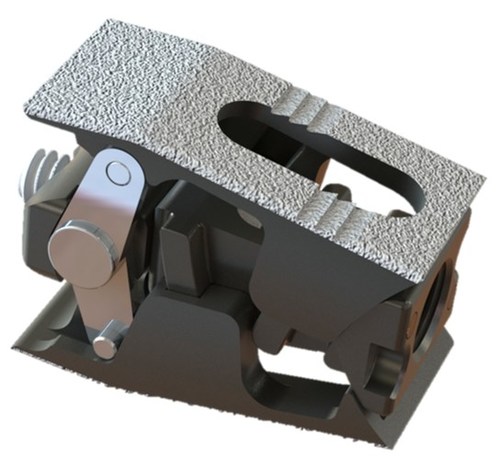
The MiRus IO Expandable Lumbar Interbody Technology utilizes MoRe® Rhenium-based Superalloy technology, a noncorrosive metal that is the strongest in the world. It is non-corrosive and far superior to nickel or iron inserts which can cause pain in patients. Dr. Cormier says, “I have to credit Lafayette Surgical for bringing in this technology and having the confidence that we can accomplish the goal of helping the patient with less invasive procedures. I can now do what I was trained to do through smaller corridors with the same or better outcomes than a few years ago.”
Dr. Cormier is not one to rush a patient into surgery. “If your x-rays are horrible but you are not in pain, don’t have surgery. Unfortunately, some do have the surgery, end up in pain, and need revision surgery.” He will perform a motion preservation surgery in lieu of a fusion to help people keep their mobility. “Get a second opinion if you are on the fence. If you are in pain, typically there is some kind of option. If you do need surgery, we’ve been blessed to have phenomenal specialists in this community. You don’t have to rush to Houston to have surgery.”
A new invention called the Q-Collar is a device Dr. Cormier recommends for any athlete in high-impact situations. It is the only FDA-cleared sports equipment that helps protect athletes’ brains during head impacts. Cormier actively serves on their medical advisory committee. The technology is based upon the physiology of the woodpecker and the battle ram, two animals who live by striking their heads. (The woodpecker strikes its head 25,000 times per day or 85 million times in its lifetime, resulting in no brain injury; battle rams create a force of 780 pounds each time they hit each other, which is like being hit with a baseball bat at 80 miles per hour!)
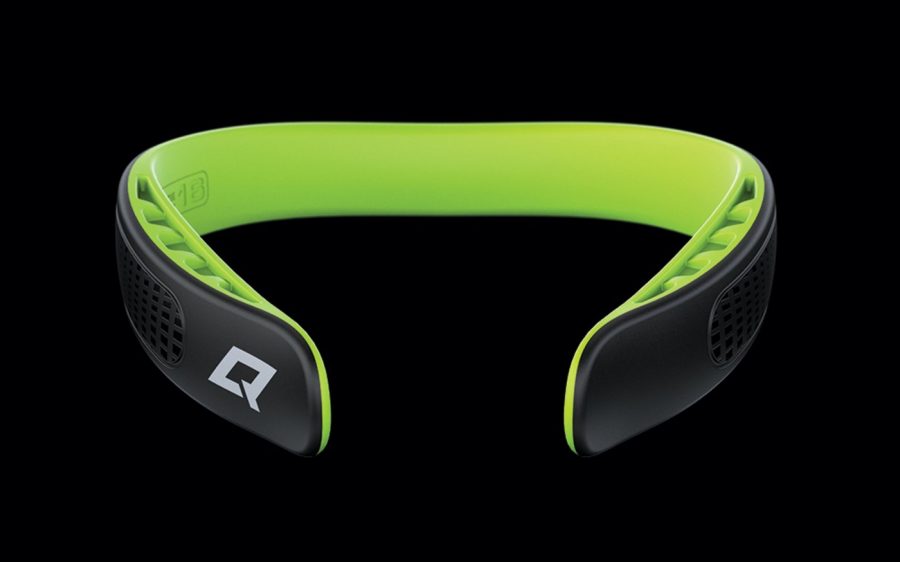
Dr. Cormier grew up in a competitive family and jokes that his older brother, John, and sister, Delores, would all race to brush their teeth. His goal was to be a team doctor for Formula One and eventually created a safety group for the racing industry alongside the renowned neurosurgeon Dr. Julian Bailes, Dr. Alan Appley, and Dr. Dani Bidros. They pulled together surgeons and doctors who had been athletes in the past and created the Motorsports Safety Group.

A race car driver himself, Dr. Cormier started out racing go-carts which he says can travel up to 130 miles per hour. He has also had the opportunity to test race cars at Talledega and has driven at speeds up to 187 miles per hour. When asked how safe that is, he joked, “Is it safer to be on a track with other professional drivers or on Johnston St. with people texting and dealing with their kids? I’d rather be on the track any day of the week with professionals because they know how to avoid you, they know how to take a hit. While you see accidents on tracks, they are nothing compared to day-to-day life.”
Music has also been an integral part of Dr. Cormier’s life since his younger days at STM when he was a DJ alongside his entertainer friends, Marcus Lyle Brown and Carl Martin, who both went on to fame as an actor and singer, respectively. In 2015, Dr. Cormier’s passion for music was reignited when he attended Hang Out Fest in Orange Beach, AL where Skrillex was on stage. He remembers it was a place of “young energy, people having fun. No one was concerned with politics, there was no violence, just together having a good time and it was safe. Dr. Cormier had met Hall of Fame Cajun Fiddler Hadley Castille, who had told him, “Doc, I don’t think I’m a good fiddler, I just make music that makes people feel good.” Jason Cormier now carries the inspiration that Castille gave him every time he creates an original track or a remix. His first album had over 2.5 million plays in Spotify, under the name “CORM!!”

Jason Cormier recently completed his autobiography entitled “Driven – Hip-Hop, Fast Cars, Basketball and Brain Surgery” where he shares the seven characteristics he has developed for overcoming challenges on his path to success. Surviving the death of a brother, as well as abuse and depression in his younger days, Dr. Cormier outlines ways we can all stay mentally strong and focus on success. Four tenets that Dr. Cormier recommends when dealing with diversity: (1) Invest in yourself; (2) Surround yourself with positive people; (3) Be accountable; and (4) Read or write something every day. His overriding message: “People need to know there are resources, whether it is a friend, coach or clinic; there are so many good things here in Lafayette!”
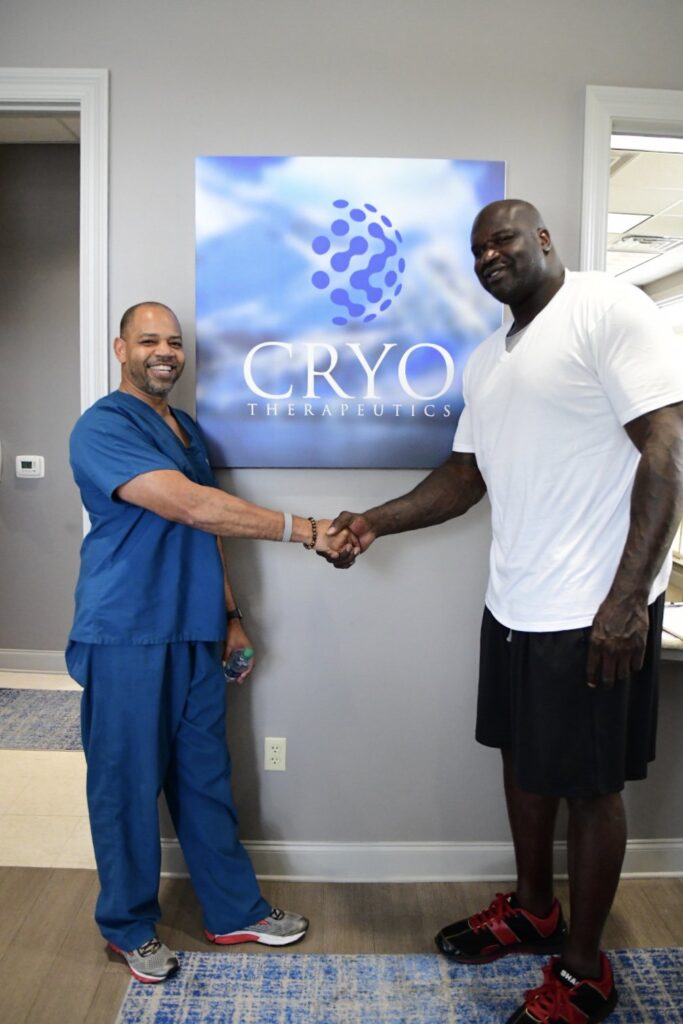
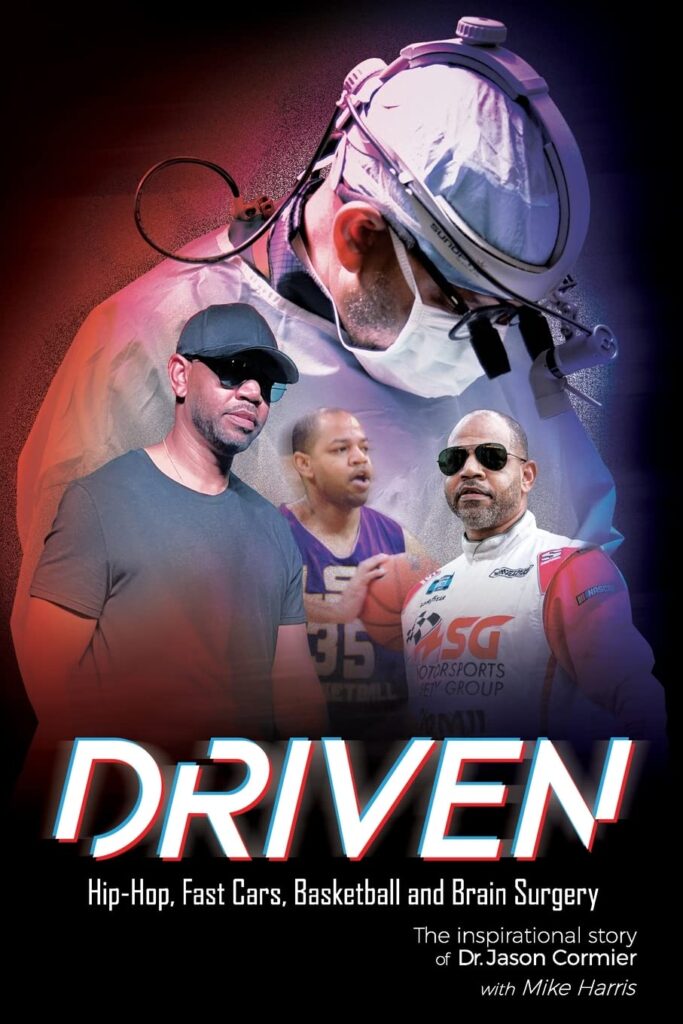
Dr. Jason Cormier wrote his autobiography, Driven, which will be released on 10, January 2023. It may be pre-ordered at Barnes and Noble and Amazon. Find out more at https://www.thedrivenbook.com/
We thank Dr. Jason Cormier for his many contributions to our community and the medical community in Lafayette and beyond! Discover Lafayette also thanks Lafayette Surgical Specialty Hospital for its support of our podcast and for introducing us to the cutting-edge technology available here in Lafayette.

